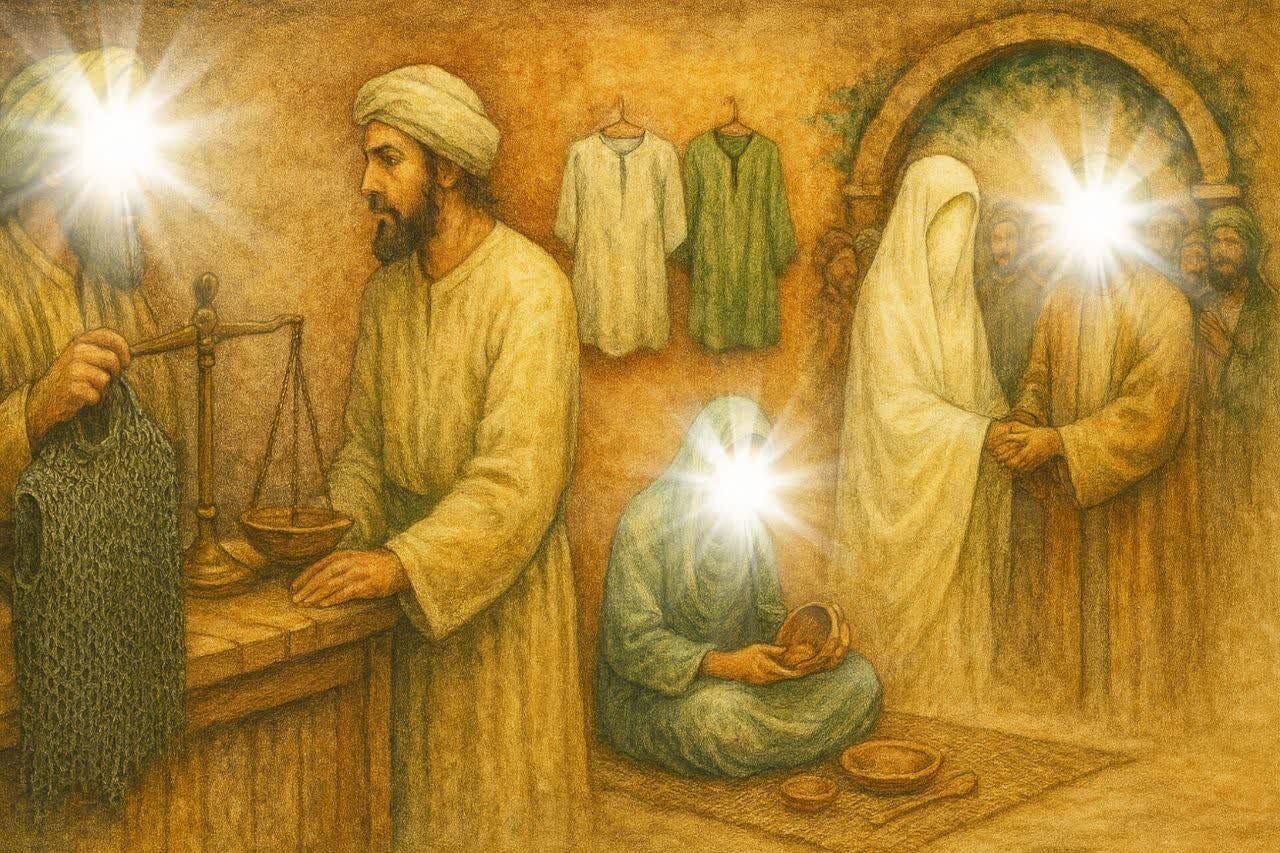Beyond Material Worth: Redefining Value in Marriage
An exploration of how cultural dowry practices conflict with the Islamic view of a woman's inherent dignity, as defined in the Quran and by the example of the Ahlulbayt.
The Cultural Problem vs. The Islamic Principle
In many societies, the concept of a dowry—a significant transfer of property, money, or goods from the bride’s family to the groom or his family—has become a deeply embedded and often burdensome prerequisite for marriage. This practice can implicitly (and sometimes explicitly) tie a woman’s value to the material wealth she brings to a union.
This cultural expectation, however, stands in stark contrast to the foundational principles of Islam, which establishes a woman’s dignity as inherent and places the financial responsibility for marriage squarely on the man.
The Quranic View on a Woman’s Status
The Quran does not measure the worth of a person by their possessions. Instead, it defines the relationship between men and women as one of shared origin, mutual respect, and spiritual companionship.
1. A Shared and Equal Origin The Quran cuts at the root of any notion of inherent superiority by emphasising that men and women are created from a single, shared source. This establishes their equal standing in humanity.
Surah An-Nisa, Chapter 4, Chapter of the Women, Verse 1
“O mankind, fear your Lord, who created you from one soul and created from it its mate and dispersed from both of them many men and women...”
This verse affirms that men and women are of the same essence, fundamentally equal in their creation and moral responsibility.
2. The Purpose of Marriage: Tranquility, Not Transaction The Quran beautifully defines the purpose of marriage not as a financial acquisition but as a means to find peace, love, and compassion.
Surah Ar-Rum, Chapter 30, Rome, Verse 21
“And of His signs is that He created for you from yourselves mates that you may find tranquility in them; and He placed between you affection and mercy. Indeed in that are signs for a people who give thought.”
This verse clearly frames a spouse as a partner in whom one finds sakinah (tranquility), mawaddah (affection), and rahmah (mercy). A culture that prioritizes a dowry shifts this focus from finding a partner for peace to acquiring a person for profit, corrupting the sacred purpose of the institution.
The Prophetic Model and Financial Responsibility
Islam not only defines a woman’s worth non-materially but also reverses the financial expectation seen in dowry cultures. The financial responsibility for establishing the marriage and household is placed upon the man.
The Example of Imam Ali (peace be upon him) The most powerful precedent for this is the marriage of Imam Ali (peace be upon him) and Lady Fatimah (peace be upon her), the daughter of the Prophet Muhammad (S). When they were to be married, Imam Ali, who was not wealthy, sold his own armor to cover the expenses and provide the mahr (dower, a gift from the groom to the bride).
This historical action establishes a clear and definitive model:
The groom is responsible for the financial provisions.
Simplicity and contentment are virtues, not a lack of status.
The bride’s family is not burdened with financing the marriage.
The Man’s Financial Duty This principle of male financial responsibility is a consistent theme in Islamic jurisprudence. The Quran even highlights this responsibility in various contexts, such as in Surah Al-Baqarah (Chapter 2, The Cow, Verse 236), which, while discussing divorce, reinforces the man’s duty to provide for the woman according to his means:
“...But give them [a gift of] compensation - the wealthy according to his capability and the poor according to his capability - a provision according to what is acceptable, a duty upon the doers of good.”
This underscores a broader principle: the man is the one designated with financial responsibility, not the one to be financially enticed by a bride’s family.
The Harmful Impact of a Dowry-Centered Culture
When this Islamic model is ignored in favor of cultural traditions, the consequences are damaging and contrary to the faith.
Dehumanization: It turns marriage into a transaction and reduces a woman’s identity to her material value.
Financial Burden: It places immense and un-Islamic pressure on the bride’s family, sometimes leading to crippling debt.
Social Problems: It can delay or prevent the marriages of young people whose families cannot meet these exorbitant cultural demands.
Undermining Dignity: It creates undue expectations in the groom’s family and undermines the respect and dignity the woman is owed.
In essence, the culture of demanding a dowry from the bride’s family is a social distortion, not an Islamic mandate. Islam liberates women from this material measure, affirming that their true worth lies in their humanity, character, and piety, as the Prophet Muhammad (peace be upon him) is reported to have said: “Daughters are a source of blessing and mercy.”
Reference: ABNA


